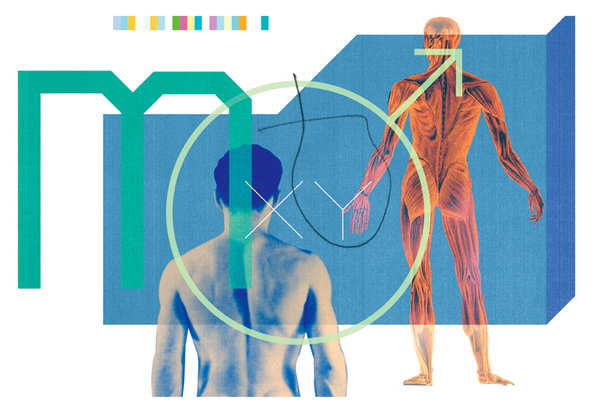Dr. Weeks’ Comment: Corrective Cancer Care does NOT endorse androgen deprivation. To the contrary, if the man’s testosterone levels are low, we replenish. (See posts on the merits of adding testosterone after this shocking article from the NY TIMES)
Dr Morgentaler proved that testosterone is NOT the guilty party but no one is listening.
Study Discounts Testosterone Therapy for Early Prostate Cancer
For decades, millions of men with early prostate cancer have been placed on drug therapy to suppress their production of testosterone, despite such significant side effects as impotence, diabetes and bone loss. Now a large new analysis has concluded that so-called androgen deprivation therapy does not extend the lives of these patients.
“There are so many side effects associated with this therapy, and really little evidence to support its use,” said Dr. Grace L. Lu-Yao, a researcher at the Rutgers Cancer Institute of New Jersey and the lead author of the report, published on Monday in JAMA Internal Medicine. “I would say that for the majority of patients with localized prostate cancer, this is not a good option.”
Dr. Lu-Yao and her colleagues followed tens of thousands of men with early prostate cancer for as long as 15 years and found that those who received androgen deprivation therapy lived no longer on average than those who did not. The study joins a growing body of evidence indicating that for many men with early prostate cancer, avoiding testosterone-suppressing drugs altogether may be better than grappling with their potentially devastating toll.
One expert who was not involved in the new study, Dr. James M. McKiernan, acting chairman of urology at NewYork-Presbyterian Hospital/Columbia University Medical Center said its findings were “eye-opening and even alarming.”
“This isn’t the first study that suggests that there’s no added benefit to this therapy,” said Dr. McKiernan said. “But there are still a fair number of doctors recommending it and patients receiving it.”
Every year, roughly a quarter- million new cases of prostate cancer are diagnosed in the United States. More than 90 percent of these men have an early form of the disease in which the cancer has not spread and is classified as low-risk.
Drugs to suppress hormones like testosterone ”” essentially inducing chemical castration ”” can shrink prostate cancers or cause them to grow more slowly in men with more advanced or aggressive disease. Androgen deprivation can help improve survival in these patients when combined with radiation or other treatments.
But experts have become increasingly concerned about the widespread use of this treatment in men with early-stage disease, particularly older patients whose slow-growing cancer is unlikely to have serious health consequences.
In the 1990s, use of these drugs rose sharplydramatically in patients of all ages and stages of the disease, and especially in older patients. Today it is estimated that at least a quarter of all patients over age 75 are chemically castrated.
Men are usually put on the drugs for life, which substantially raises their risk of fractures, hot flashes, diabetes and heart disease.
The new study involved more than 66,700 men with prostate cancer who were aged 66 or older. The researchers compared men in areas of the country where the drugs were frequently prescribed withto men in other regions where the drugs were less commonly used. Over all, they found that the drugs were not associated with greater long-term survival.
The findings echo those of another large, randomized trial carried out in Europe that found that the hormone treatments did not benefit early-stage patients assigned to take them. The drugs only improved survival only in men with a more aggressive form of the disease.
An editorial accompanying the new study, written by physicians at the Dana-Farber Cancer Institute in Boston, said it wasis now clear that there is “no compelling evidence” to justify using the drugs onto men with early-stage prostate cancer.
The editorial called the practice “a prime candidate” for inclusion in the nationwide Choosing Wisely campaign, an initiative started by the American Board of Internal Medicine Foundation and other groups to warn doctors and patients about unnecessary medical tests and procedures.
READ MORE ABOUT THE BENEFITS OF ADDING TESTOSTERONE:
|
Mar 25, 2012 … Should Testosterone Replacement be Offered to Hypogonadal Men Treated …Testosterone Replacement in Men Treated for Prostate Cancer.
|
|
Nov 4, 2012 … The standard of care dictates that testosterone must be withheld from men withprostate cancer and “androgen deprivation” (chemical …
|
|
Oct 29, 2012 … Dr. Weeks’ Comment: The role of testosterone and prostate cancer is complex and controversial. Dr. Abraham Morgenthaler, M.D. at Harvard …
|
|
Dr. Weeks’ Comment: High testosterone is considered by some as a risk for prostate cancer. Many of us have suspected high estrogen instead and the research …
|
|
Testosterone and Prostate Cancer. Posted by Bradford S. Weeks, MD on September 23, 2009. Dr. Weeks Comment: Of course, the hormones described here …
|
|
Jun 20, 2008 … PATIENTS AND METHODS: In 128 patients with benign prostatic hypertrophy orprostate cancer, testosterone, follicle-stimulating hormone, …
|
|
Jul 31, 2009 … Blood tests revealed undetectable prostate-specific antigen (PSA) and markedly reduced total and free testosterone. A DXA scan was normal.
|


